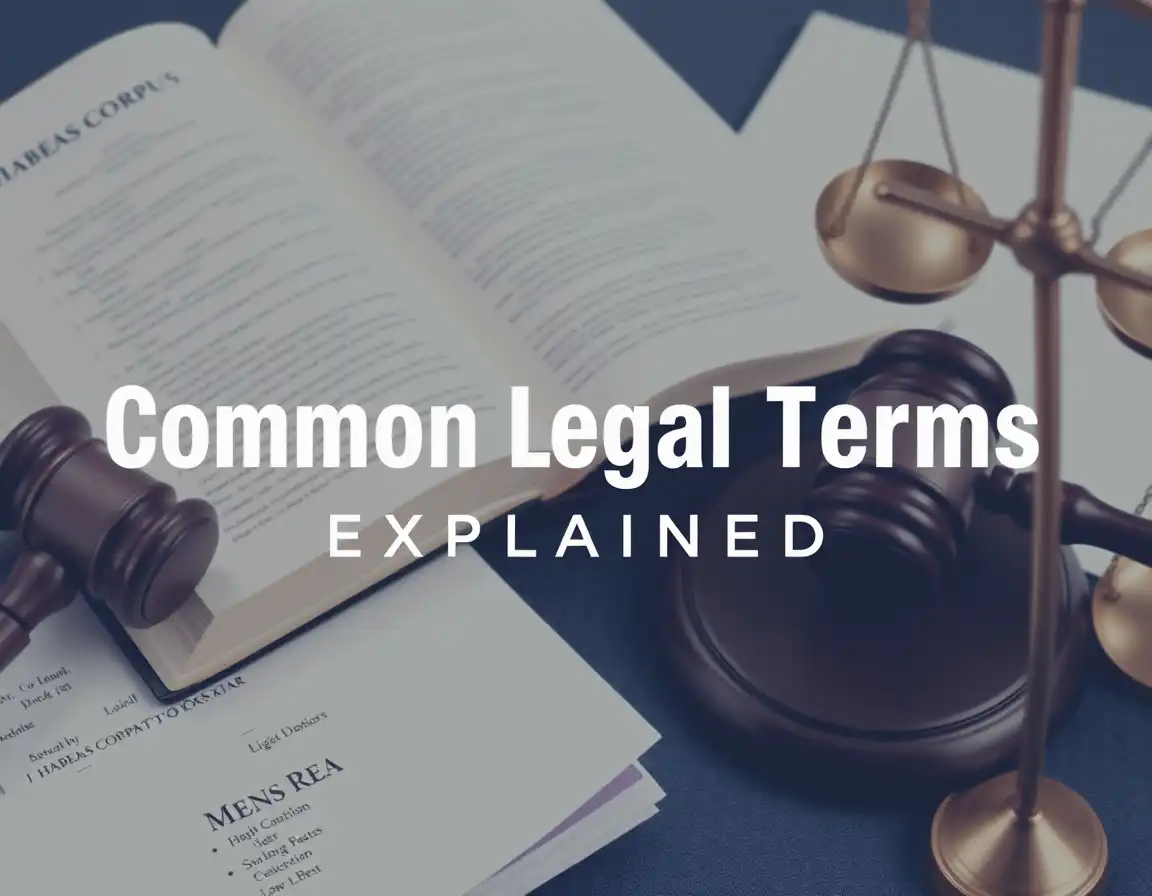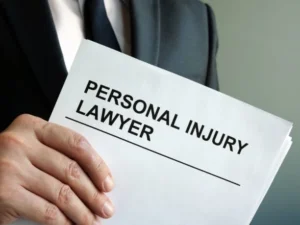Understanding legal terminology becomes necessary at every stage-whether reading a contract, crying or celebrating over courtroom drama, or solving an actual legal issue. Law itself speaks a different language-filled with Latin phrases, plenty of abbreviations, and specialized vocabulary that raises the hair on the back of the neck. Familiarity with these legal terms, however, renders any legal conversations or documents much less forbidding.
This guide is supposed to assist those who have never studied law or are new to it in understanding the most widely used law words, terms, and abbreviations. These are the words that you would likely come across whenever you are in court or dealing with any kind of a contract-thus knowing them gives you a better insight into your potential rights and responsibilities.
What Are Legal Terms?
Legal terms are expressive words or phrases that have specific meanings according to the law. These might range from common phrases heard when one is sitting in a courtroom, to very formal clauses in written agreements. The legal field functions very exquisitely; therefore, each term performs a determined role that prevents possible confusion while ensuring proper administration of justice.
Legal terminology is oftentimes found in court documents, contracts, laws, and judicial decisions, implying that wherever one is suing or getting sued, signing agreements, or interpreting a law-the working vocabulary of a legal practitioner ensures that nothing is misinterpreted. Learning these terms is a way to start developing legal literacy.
Basic Legal Terminology for Beginners
Getting the basics right on legal phrasing is significant for anyone who finds himself in the legal realm for the very first time. Terms like plaintiff, defendant, tort, or jurisdiction would sound foreign at first but serve as the foundations of several kinds of cases. Knowing their meaning gives you confidence around understanding what’s going on around you.
There are terms that float around in the courtroom; they also find their ways into the real estate contract, employment contracts, and mixture of everyday arguments. If you are reading any legal document, recognizing basic law terms will help you ask pertinent questions and could help you avoid confusion.
Common Law Words and Their Meanings
Some legal words with simpler meanings that frequently arise in the courtroom, in contracts, and in legal opinions are:
- Affidavit is a written statement made under oath.
- Defendant is the person sued or accused in court.
- Plaintiff is the person bringing a suit.
- Tort is a wrongful act leading to liability.
- Verdict is the decision of the jury or judge.
- Liability is the legal responsibility for one’s acts or debts.
- Appeal is a request for a higher court to review for a decision.
- Subpoena is a legal command to appear in court and/or bring documents.
- Damages is money given to one side in a lawsuit.
- Settlement is a voluntary agreement between parties to end a legal dispute without pursuit of a trial.
Familiarity with these terms makes one well-equipped to interpret roadblocks and insights into the workings of the legal process and communication.
Essential Legal Vocabulary in Court and Contracts
In both the courtroom and contracts, terms exist that will not typically be used in everyday conversation. This legal jargon has a certain purpose: to clarify, for instance, a party’s obligations in a given contract or the procedures during a trial. To anybody involved in a lawsuit or dispute over a legal issue or signing a contract, understanding these terms is vital to lacking confusion, misinterpretation, or, at worst, making a costly blunder.
Legal writing is perfection with precision and whose precision is gained from years of incorporating consistent language. Some terms have become favorites in court proceedings or contractual agreements, and below are some words and phrases meant for areas wherein they are commonly encountered. Courtroom words are generally used during hearings, trials, and other judicial processes.
On the contractual level, one is also likely to encounter such words as indemnify, breach, force majeure, and arbitration, which have important implications. As an example indemnity can be taken to mean to pay damages to a person and breach can be taken to mean to break the terms of a contract. Knowing these will assist you in managing risks and making a decision about what you are signing that is legally binding to you. Unless one knows that, it is possible to make agreements under the terms that have unforeseen liabilities.
Motion
A specific formal request presented to the court asking for a particular judgment or action in a case. For example, motions to dismiss the case or exclude evidence.
Deposition
The sworn testimony of a witness or party to a lawsuit, in or out of court, typically used to gather information prior to trial.
Objection
An attorney’s challenge to the admissibility of a given piece of evidence or a question being asked during the trial. The judge may either sustain or overrule the objection.
Discovery
The pretrial phase in which both parties disclose information, documents, and witness lists to assure a fair trial in a case.
Testimony
Verbal evidence given by a witness under oath in court or before another authority.
These kinds of vocabularies signal over some seeming duties or rights. Failing to appreciate them may lead to unintended obligations or exposures in law.
Legal Words You’ll Hear in a Lawsuit
A lawsuit casts both plaintiff and defendant under the bright lights of very particular legal words. Those beginning at the level of the presenting instrument through completion or summary judgments become critical to understanding the information at hand.
Such terms are best known in civil cases as “complaint,” “summons,” and “deposition.” The complaint constitutes the starting point not just for devices but for separation of actions, bringing charges against another party. The summons tells the defendant that a legal case has been instituted against him or her, while a deposition is an interview conducted under oath before trial. Such terms appear most frequently during legal notices, lawyer discussions, and courtroom documents.
Legal Abbreviations and Latin Terms Explained
Abbreviations and Latin terms seem to be one confusing thing in legal terminology as they form part of the legal conversation and written material. Their knowledge may therefore help in optimistically “decoding” complex legal conversations. Latin Terms You Should Know
- Habeas Corpus refers to the moveable legal action instituted for the determination of dereliction or otherwise
- Pro Bono is an act of doing legal work without charge
- Amicus Curiae is a person who holds a view or advice, the “friend of the court”
- Mens Rea is a mindset or thoughts of a person concerning a criminal act
- Res Judicata is an issue already adjudged and not open to debate
Such words might be applied in various spectra of law, thus helping enrich your overall legal education.
Why Learning Legal Terminology Matters
Knockout learning legal vocabulary is not just for cramming up terms; it enables you to take informed decisions. Reviewing a lease, making an appeal to take small claims, or responding to the court notice is what legal terms are really about: to understand the rights and obligations, along with better communication with a lawyer or even a judge.
Understanding the law terms also prevents people from nurturing falsehoods or legal errors. Those who understand legal terminology make better decisions on contracts, pleadings in court, or negotiations. It is a necessary trick for every legal practitioner or ordinary man.
Final Thoughts
Legal jargons look horrific in the beginning, but the terminology eventually gets improved with practice. This common legal words and terminology guide serves as a strong grounding for talking you through legal documents, courtrooms, and conversations with additional clarity and confidence.





